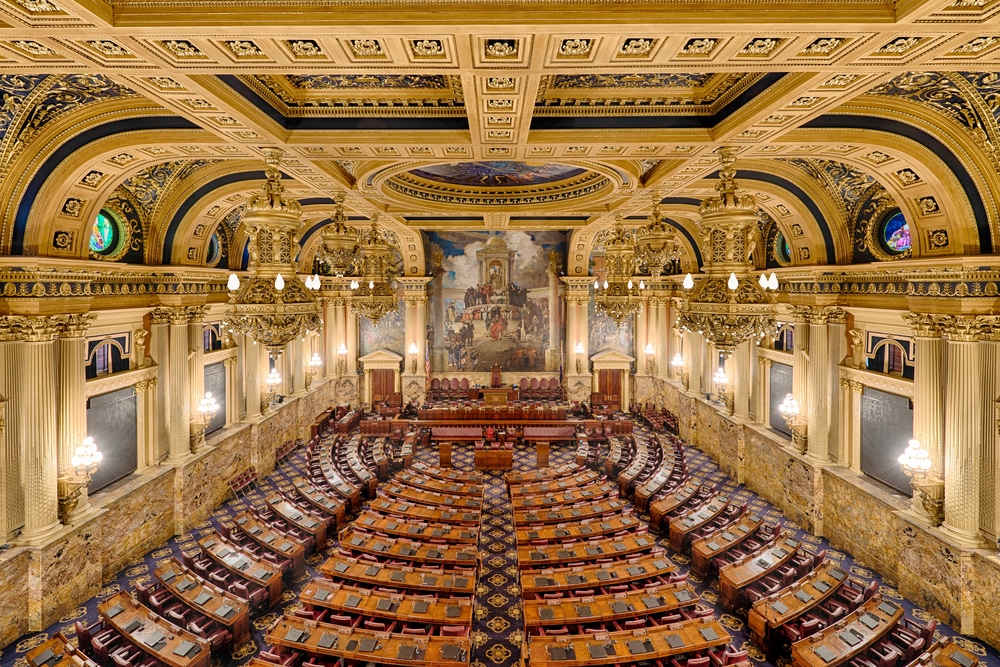Speaker v. Fields
Scoreboard
Case Snapshot
In August 2016, a group of secular atheists sued the Pennsylvania State House in federal court for denying their request to lead daily prayers, claiming that it violated the Establishment Clause to bar a non-religious person from offering prayer. In August 2018, the federal court ruled against the House, stating that atheism is a minority religion entitled to equal treatment with all other religions. The case is on appeal at the U.S. Court of Appeals for the Third Circuit, where Becket filed a friend-of-the-court brief on January 7, 2019. Becket argues that secular atheism is a philosophy, not a religion, so it does not violate the Constitution to limit legislative prayers to chaplains who have faith in a higher power. Moreover, conflating non-religious beliefs with religious beliefs would weaken the legal foundation of our religious liberty.
Status
Share this Case

Case Summary
Centuries-old tradition under attack in Pennsylvania
For centuries, state and federal legislatures have started their sessions with prayer. The prayers are sometimes led by legislative chaplains, other times by legislative members or guests who represent faith groups from across the state.
In 2016, a group of secular atheists, many of whom publicly mock prayer and religion, requested to serve as chaplains and deliver non-religious “invocations” in the Pennsylvania State House. The Pennsylvania House speaker denied their request on the grounds that their beliefs were not religious. In August 2016, the atheists sued the Speaker of the Pennsylvania House in federal court, claiming that it violated the Establishment Clause to bar a non-religious person from offering prayer.
Legislative prayer reminds us that our rights come from something higher than government
Legislative prayer is a tradition that goes back to our nation’s founding. Both houses of the First Congress hired chaplains who, just a couple of years later, likely prayed on the days Congress debated the Bill of Rights. The Supreme Court has held that such prayers, recognized by the Framers and existing for decades without leading to an establishment of religion, do not violate the Establishment Clause. Moreover, legislative prayer supports the Constitution by reminding us of the source of our rights: a power higher than the government.
Acknowledging the important place legislative prayer holds does not require government to give atheistic non-prayer the same platform. The prayer simply accommodates religious believers in what is already a secular process. The Pennsylvania State House that requires guest speakers for invocations be members of the legislature or members of a church or religious organization. This makes sense. Everyone has beliefs, but not all beliefs are religious. The purpose of the chaplaincy is to provide religious support. To allow militant and other secular atheists to occupy the chaplaincy undermines the purpose of the position in the first place. The group of atheists suing the Pennsylvania State House do not appeal to a higher power, and on top of that, they are known for mocking and ridiculing religion.
What’s at stake includes more than legislative prayer. Since our nation’s founding, religion has had a special distinction in the law as a right that cannot be overruled by government. Giving non-religious beliefs the same platform and distinction as religious beliefs would undermine more than just religion—it would weaken the legal foundation of our religious liberty.
Becket steps in
In August 2018, the district court decided in favor of the atheists, ruling that the Pennsylvania State House legislative prayer policy violates the Constitution. The Speaker of the Pennsylvania House appealed the case to the Court of Appeals for the Third Circuit. Becket filed a friend-of-the-court brief on behalf of several chaplains, and on August 23, 2019 the Third Circuit ruled in favor of the Speaker of the House, writing, “we uphold the policy because only theistic prayer can satisfy the historical purpose of appealing for divine guidance in lawmaking.”
IMPORTANCE TO RELIGIOUS LIBERTY
- Public square: Because religious exercise is natural to human beings, it is natural to human culture. Religious expression, including legislative prayer, should not be treated as dangerous or scrubbed from our public discourse.
- Legislative prayer: Contrary to thinking that legislative prayer violated the Establishment Clause, our nation’s founders in fact explicitly understood legislative prayer to be a reminder of the source of our rights: a power higher than the government. In 2014, the U.S. Supreme Court ruled that legislative prayer was constitutional in Town of Greece v. Galloway.